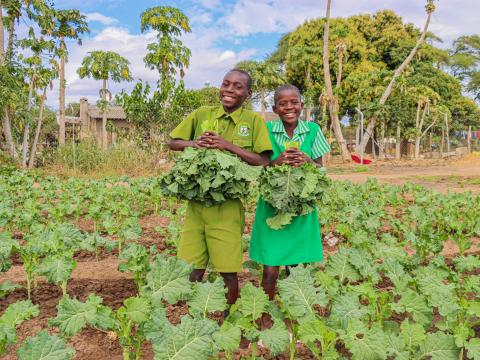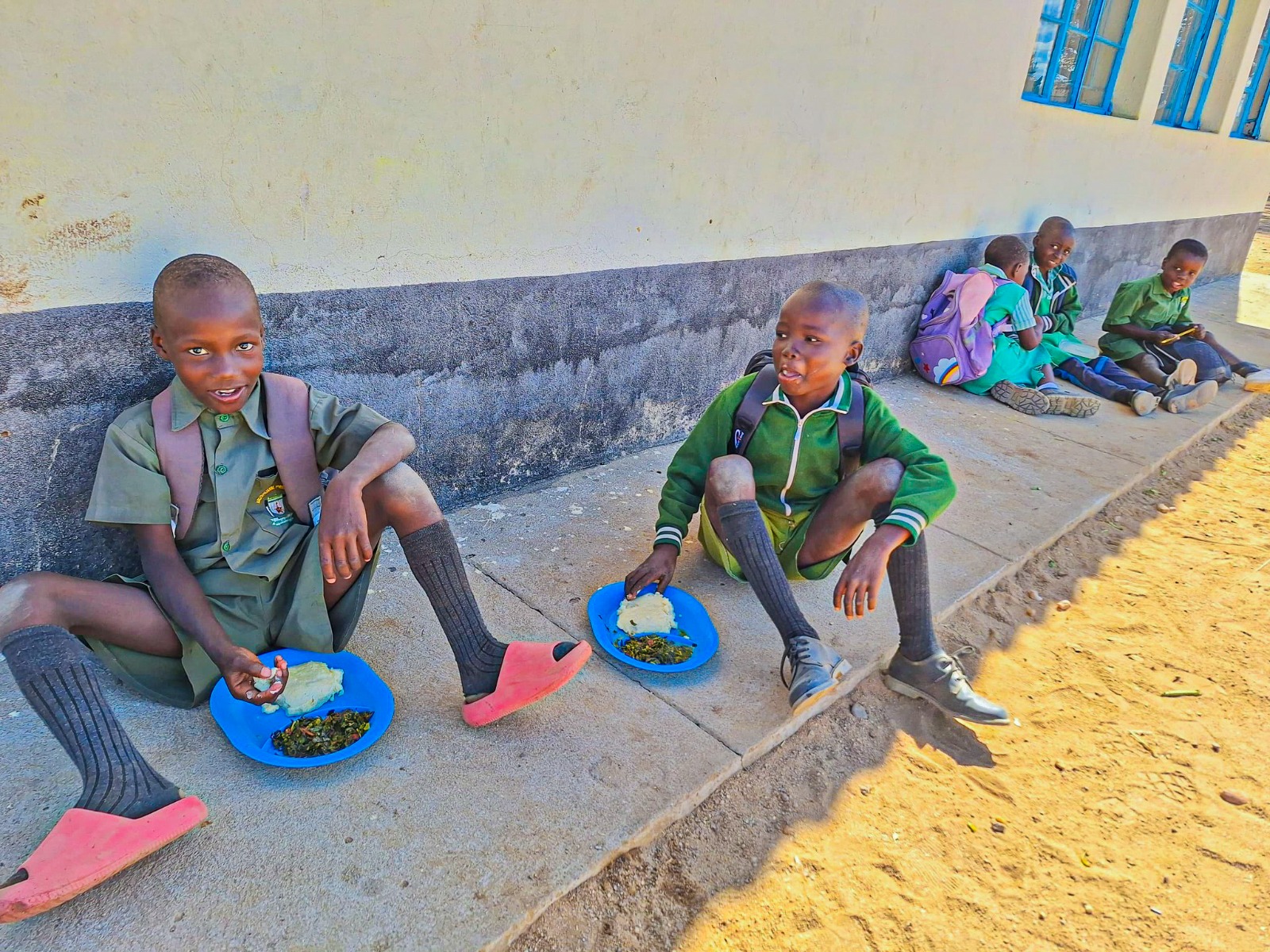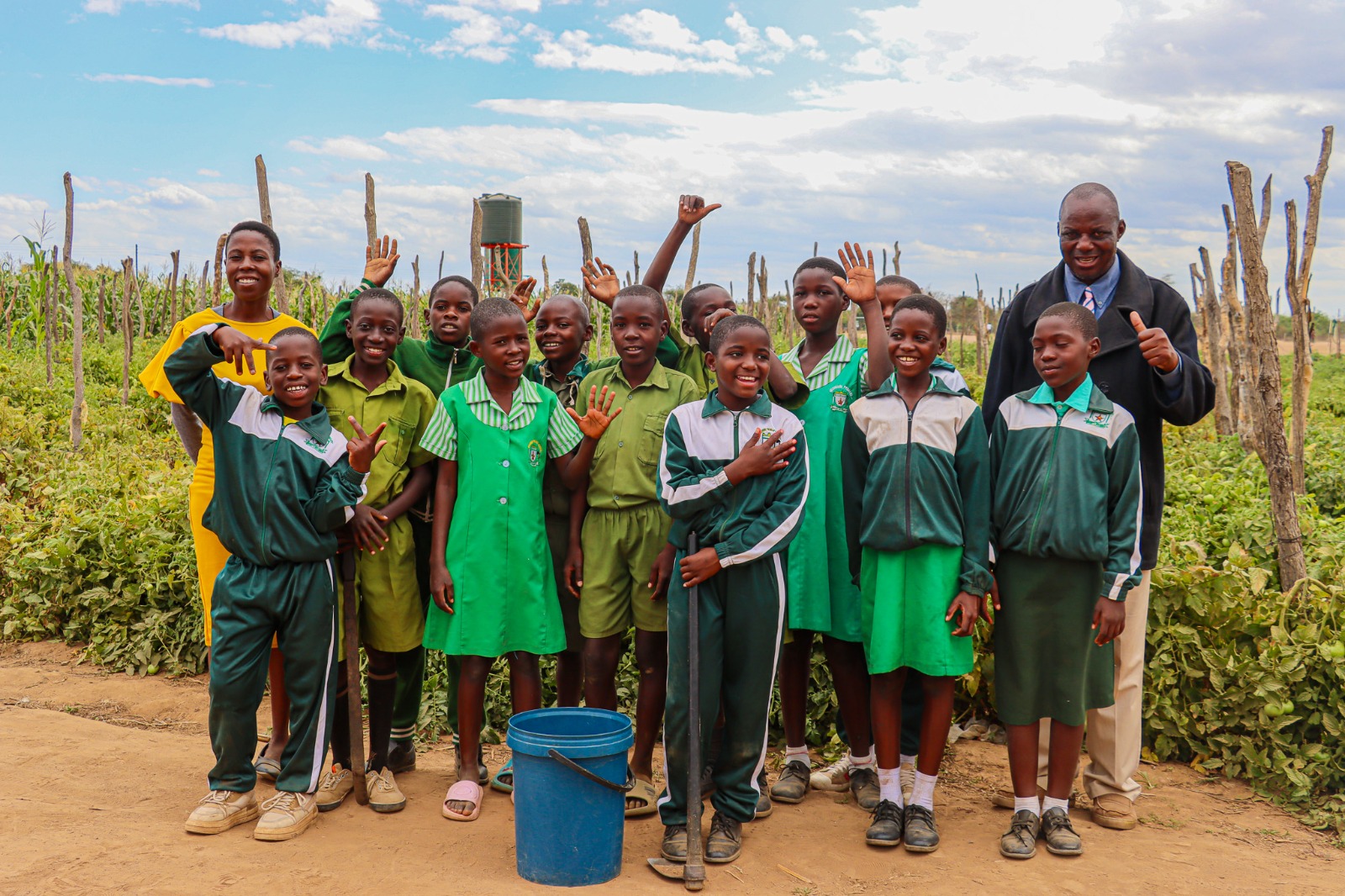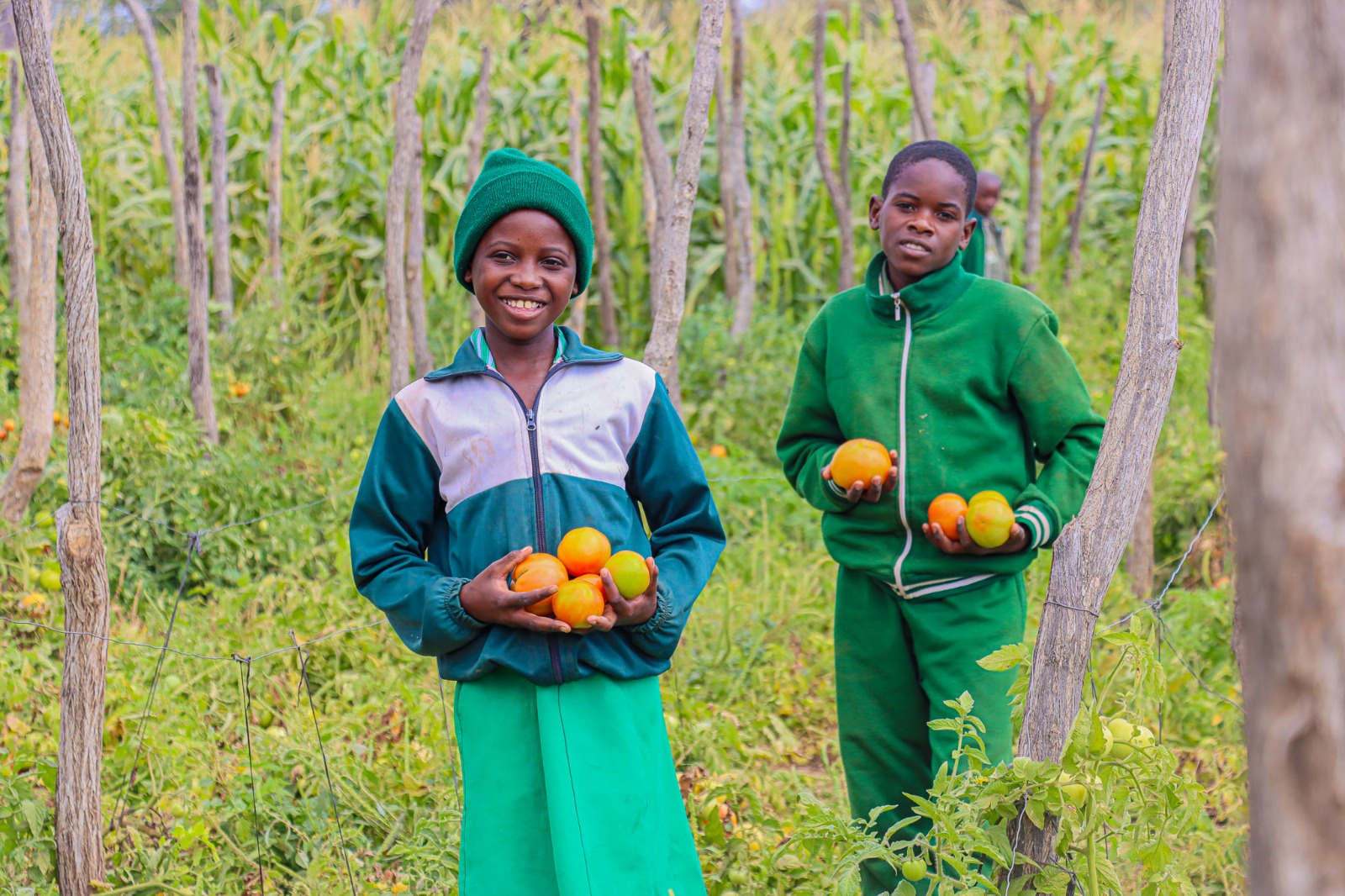Sowing Hope and Harvesting Health – Mushumbi Primary School's Nutrition Garden

By Isheunesu Gwasha (Program Communications Officer)
Every Monday, Wednesday, and Friday, the scent of steaming vegetables welcomes students at Mushumbi Primary School—not just as a meal, but as a promise that hunger won’t stand in the way of their future.
In Mbire District, a green revolution is quietly transforming the lives of children at Mushumbi Primary School. With the support of World Vision Zimbabwe through funding from World Vision US, the school has established a thriving Nutrition Garden, a ray of hope in the fight against child hunger and malnutrition.

This life-changing initiative supports World Vision’s ENOUGH Campaign, which seeks to ensure that no child suffers from hunger or malnutrition, a challenge that has driven many children in Zimbabwe to drop out of school, underperform academically, or resort to early marriages in pursuit of a better life.
At Mushumbi Primary, the Nutrition Garden is serving a higher purpose. Using produce from the garden, the school now prepares at least one hot nutritious meal every Monday, Wednesday, and Friday. These meals are not only filling empty stomachs but also bringing children back to school, keeping them attentive in class, and nurturing big dreams.

“This garden is more than vegetables. It’s the reason our learners are excited to come to school,” says Mr. Masimba, the school’s Agriculture teacher and coordinator of the Garden Club, a team of passionate student gardeners.
“We plant green mealies, tomatoes, vegetables, butternuts, and fruit trees ensuring that children eat healthy.”
For learners like Victory and Shane, the garden is more than a place to grow food—it’s where dreams take root.
“I love being part of the Garden Club. It gives me and my friends food that helps us concentrate and learn better. I hope we can have meals every day at school,” says Victory, a Grade 6 student and the school’s Vice Head girl.
“I want to be a farmer when I grow up so that I can help vulnerable children in my community just like World Vision helped us,” says Shane (10).

For Felad, the joy is simpler yet just as powerful.
“I love growing tomatoes, and I love school because I get food when I come,” he said.
Beyond addressing child hunger, the garden is also an income-generating project for the school. Surplus produce is sold to the community, with profits reinvested into school development and garden sustainability.
Thanks to a solar-powered piped water system installed with support from World Vision, the garden flourishes all year round, and students have access to clean and safe water, a critical need in rural schools.

Over 1400 students now receive nutritious meals three times a week, leading to a noticeable improvement in class attendance and participation.
But the journey does not end here, to achieve the vision of a hot, nutritious meal every school day, more donors and stakeholders need to come on board.
Together, we can say ENOUGH to child hunger, and build a Zimbabwe where every child thrives, learns, and dreams beyond hunger.